I was an Atheist Until I Read “The Lord of the Rings”
by Fredric Heidemann
Filed under Atheism, Culture
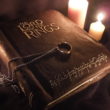
I grew up in a loving, comfortable atheist household of professional scientists. My dad was a lapsed Catholic, and my mom was a lapsed Lutheran. From the time that I could think rationally on the subject, I did not believe in God. God was an imaginary being for which there was no proof. At best, God was a fantasy for half-witted people to compensate their ignorance and make themselves feel better about their own mortality. At worst, God was a perverse delusion responsible for most of the... Read More
Strange Notions is the #4 Ranked Atheist Blog on the Internet!
by Brandon Vogt
Filed under News

I was alerted this morning that Strange Notions was just listed among the "Top 30 Atheist Blogs And Websites Every Atheist Must Follow." I was intrigued, partly because this isn't really an "atheist blog"—it's always been a discussion forum for atheists and Catholics—and partly because I follow many atheist blogs that seem to get wayyyyy more traffic and traction than we do. However, when I clicked over I was stunned to find Strange Notions not just on the list, but chosen... Read More
What Has Christianity Ever Done for the West?
by Tamer Nashef
Filed under History
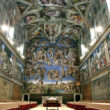
As Christmas and the holiday season draw near, it is time to take a pause and think deeply about the benefits that Christianity, particularly Catholicism, has conferred upon Western civilization. As a non-Westerner and non-Christian who has no ax to grind in this issue, I believe I can offer a fairly objective assessment of the impact that Christian ideas (some of which had pagan/Jewish precedents) have had on the evolution of Western civilization and their key role in the West’s spectacular... Read More
The Philosophical Landscape of “Westworld”
by Matthew Becklo
Filed under Movies/TV
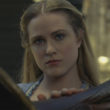
At the halfway point of HBO’s unsettling new series Westworld – a J.J. Abrams reboot of the 1973 film written and directed by Michael Crichton – some big plot questions remain. Is William a younger Man in Black? Is Bernard really a host? And what’s this maze all about? The premise of the show is (relatively) straightforward: In the distant future, scientists and businessmen collaborate to create a vast amusement park in the style of the Old West, populating it with artificially... Read More
5 Shocking Plot Twists in the Story of Science and Faith
by Brandon Vogt
Filed under Christianity and Science
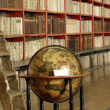
In his excellent book, Modern Physics and Ancient Faith (University of Notre Dame Press, 2003), physics professor Stephen M. Barr recounts the typical story of the the universe as told by scientific materialists. It's one of the best summaries of the naturalist worldview I've read, from any perspective: "The world revealed by science bears little resemblance to the world as it was portrayed by religion. Judaism and Christianity taught that the world was created by God, and that things... Read More
Getting Morality Wrong
by Joe Heschmeyer
Filed under Morality

Back in April, Gail Dines, a sociologist at Wheelock College in Boston, wrote a Washington Post piece arguing that pornography is a public health threat, regardless of its (im)morality: The thing is, no matter what you think of pornography (whether it’s harmful or harmless fantasy), the science is there. After 40 years of peer-reviewed research, scholars can say with confidence that porn is an industrial product that shapes how we think about gender, sexuality, relationships, intimacy,... Read More
Neil DeGrasse Tyson Shows Why Science Can’t Build a Utopia
by Trent Horn
Filed under New Atheists, Science
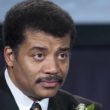
Atheist astrophysicist Neil deGrasse Tyson recently tweeted, “Earth needs a virtual country: #Rationalia, with a one-line Constitution: All policy shall be based on the weight of evidence.” I did my best in 140 characters to show how this sentiment is the exact of opposite of profound. I said, “@neiltyson ‘Rationalia’ is as useless as ‘Correctistan,’ or a country whose constitution says, 'Always make the correct decisions.'" Obviously, public policy should rationally consider... Read More
Sean Carroll’s “Ten Considerations” for Naturalists
by Brandon Vogt
Filed under The Existence of God
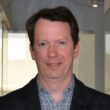
This is the final post in our long series exploring physicist Sean Carroll's new book, The Big Picture: On the Origins of Life, Meaning, and the Universe Itself (Dutton, 2016). In the book's penultimate chapter, which in my view is the book's strangest, Carroll offers an alternative to the Bible's Ten Commandments, what he calls his "Ten Considerations." They read like a mushy collection of Oprah-isms: Life isn't forever. Desire is built into life. What matters is what matters to people. We... Read More
Was Mother Teresa Really an Atheist?
by Stephen Bullivant
Filed under Atheism, Saints
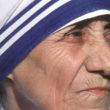
As is now well known, Mother Teresa of Calcutta suffered severe spiritual afflictions through much of her remarkable life: “This terrible sense of loss – this untold darkness – this loneliness – this continual longing for God.” These first emerged in 2001, but were only fully disclosed with the 2007 publication of her private writings and correspondence in Come Be My Light, edited by Fr Brian Kolodiejchuk MC, the postulator of her cause for canonization. In these writings, Teresa... Read More
Learning Morality from Bill and Ted
by Brandon Vogt
Filed under Christianity and Science, Morality
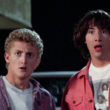
Early in this review series, I mentioned how Sean Carroll's new book, The Big Picture: On the Origins of Life, Meaning, and the Universe Itself (Dutton, 2016), gradually becomes weaker as you move through the chapters. It starts off strong and invigorating as he talks about cosmology and fundamental physics, his specialities. But as he moves into the philosophy of mind, meaning, and morality, he gets a bit wobbly. Moving From Ought to Is That's evident especially in his chapter on "What... Read More






